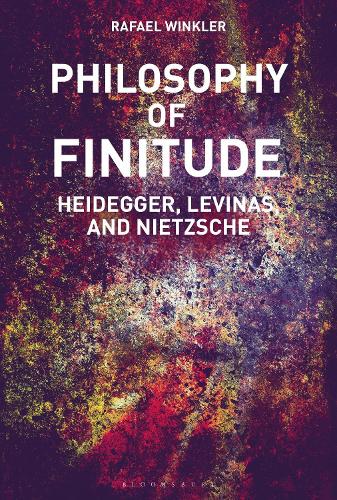
Philosophy of Finitude: Heidegger, Levinas and Nietzsche
(Hardback)
Publishing Details
Philosophy of Finitude: Heidegger, Levinas and Nietzsche
By (Author) Rafael Winkler
Bloomsbury Publishing PLC
Bloomsbury Academic
23rd August 2018
United Kingdom
Classifications
Tertiary Education
Non Fiction
Philosophical traditions and schools of thought
Philosophy: metaphysics and ontology
Ethics and moral philosophy
111.6
Physical Properties
Hardback
208
Width 156mm, Height 234mm
426g
Description
Examining the legacies of Heidegger, along with Derrida, Levinas and Nietzsche, Rafael Winkler argues that it is not the search for truth or even contradictions that stimulates philosophical thought. Instead, it is our exposure to the unthinkable or the impossible to thoughts own limits. An experience of the unthinkable is possible in our encounter with the uniqueness of death, the singularity of being, and of the self and the other. This 'thinking of finitude' also has political implications, as it provides us with a way to talk about, and evaluate, absolute strangeness and, by implication, the absolute stranger or foreigner. Illuminating Heideggers writings on the question of ontology, ethics and history, Winkler proves that this encounter with thought's limits is one of the mainstays of the philosophies of difference of Heidegger, Levinas, and Nietzsche.
Reviews
Through a compelling and illuminating study, Rafael Winkler asks whether uniqueness is a possible experience and how it should be thought. He deals with this concept in a variety of ways: the uniqueness of being, the self, the other human being, death, and responsibility for the other. By situating itself at the limits of thought, the book presents new facets of the philosophy of absolute difference. Readers will find much to ponder as the book also calls for an engaged reflection on a highly contentious problem: finitude. * Gabriel Riera, Associate Professor of Literary Studies, University of Illinois at Chicago, USA *
A unique, original, and very welcome contribution to philosophical and literary studies of the self, experience, and singularity. Written with an admirable rigour in explication and analysis, a lucidity in expression, and an always cogent line of reasoning, Philosophy of Finitude explores the limit experiences of the I through the focus on Heidegger, Levinas, and Nietzsche, that produces exciting fascinating new readings both of selfhood and identity. * Julian Wolfreys, Professor of English, University of Portsmouth, UK *
Author Bio
Rafael Winkler is Associate Professor in the Department of Philosophy at the University of Johannesburg, South Africa.
